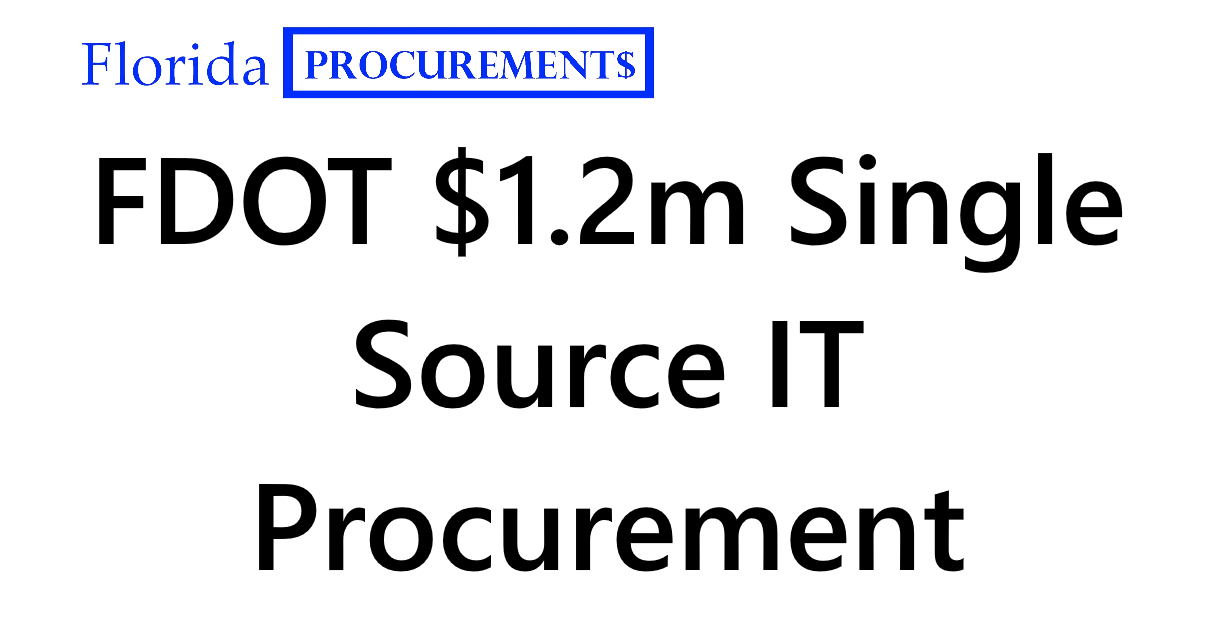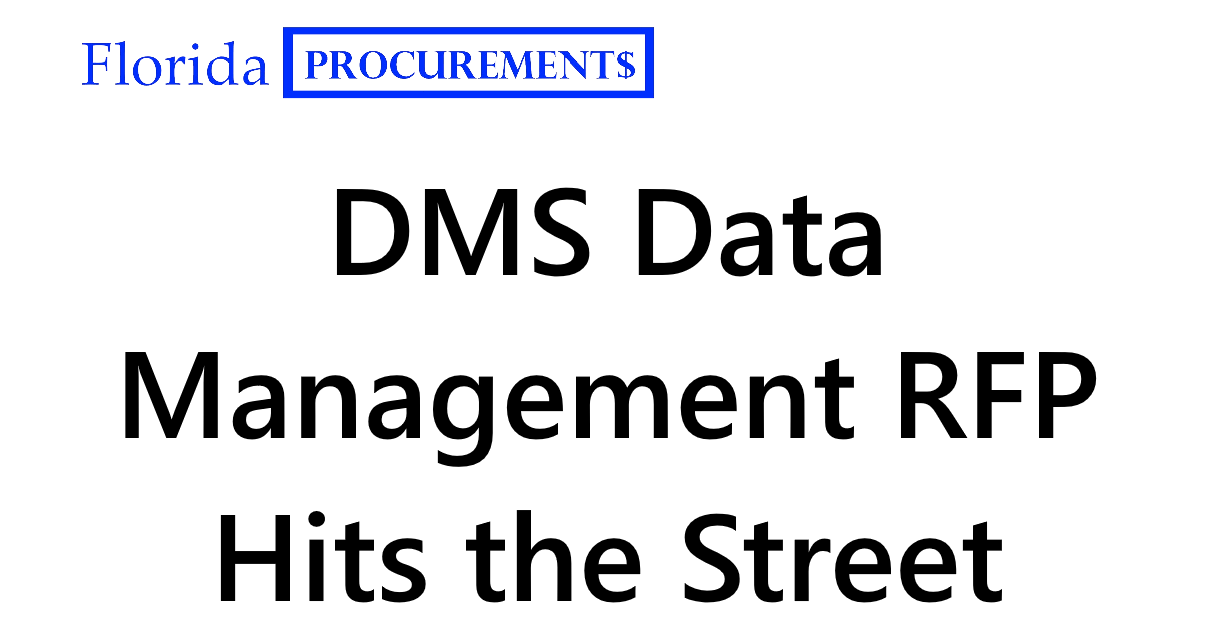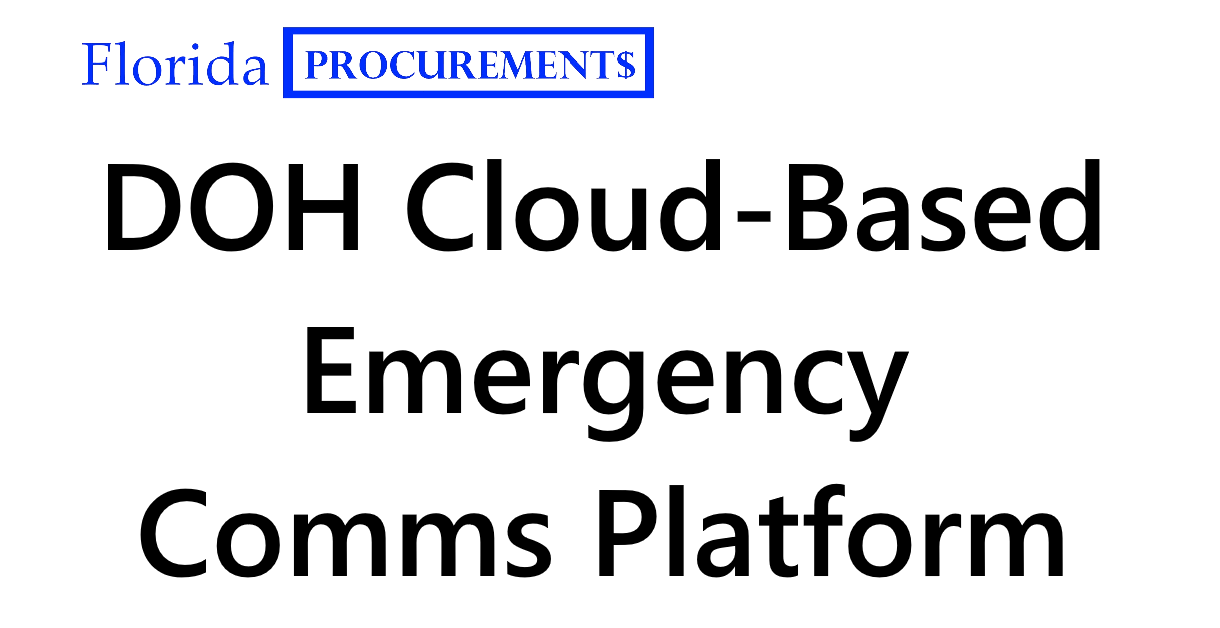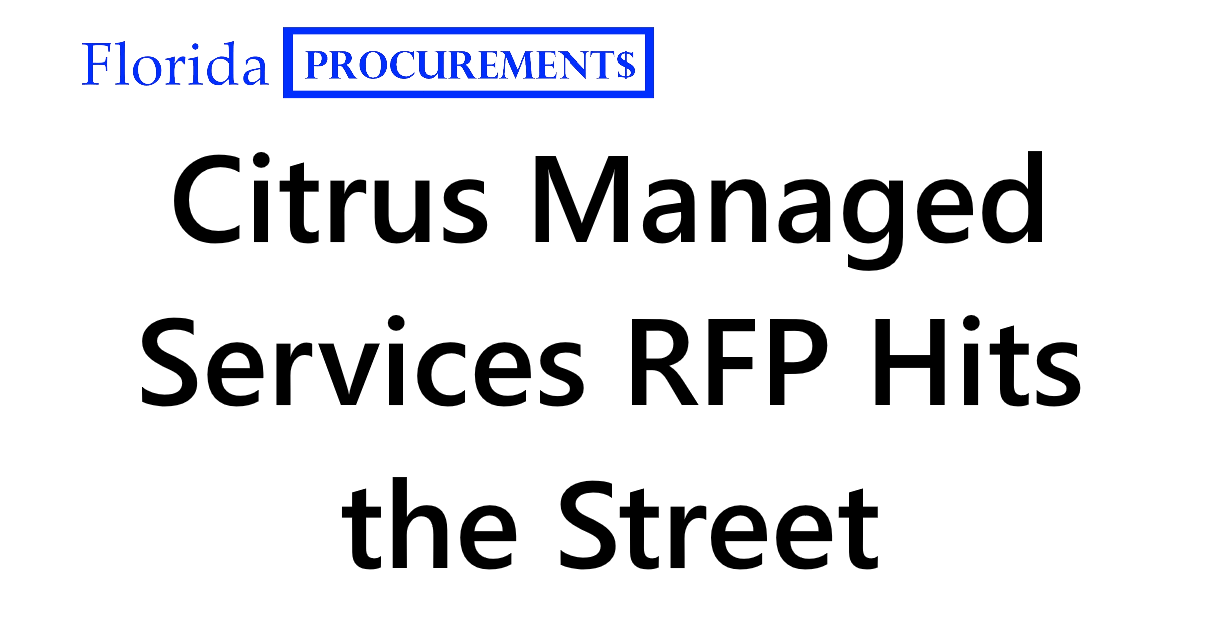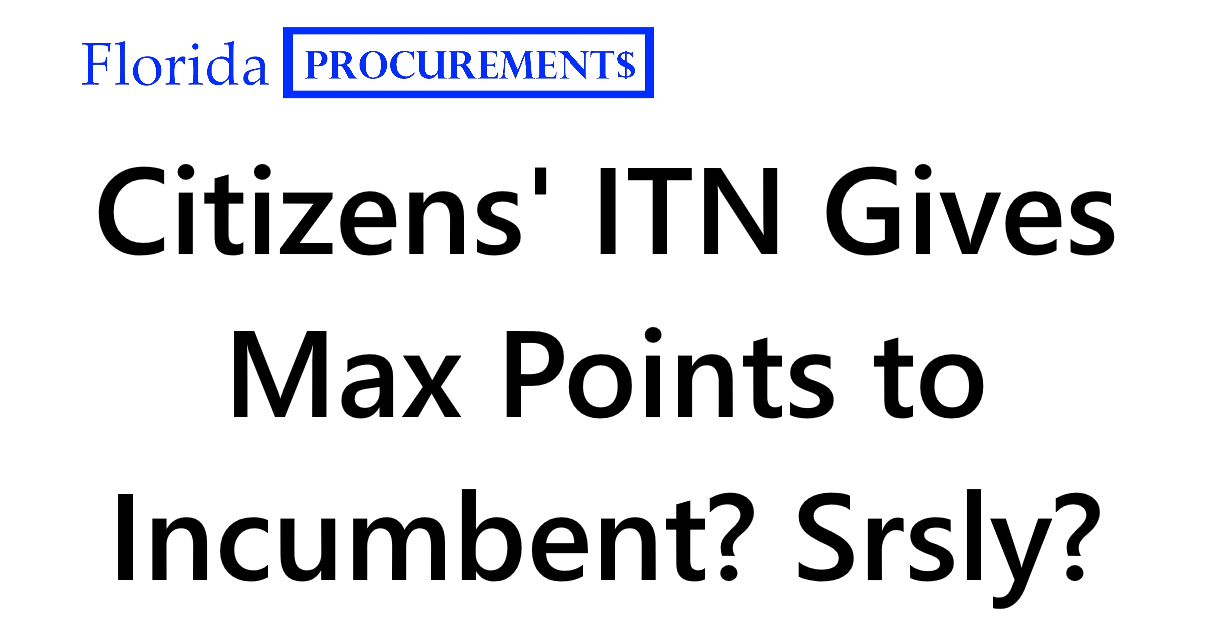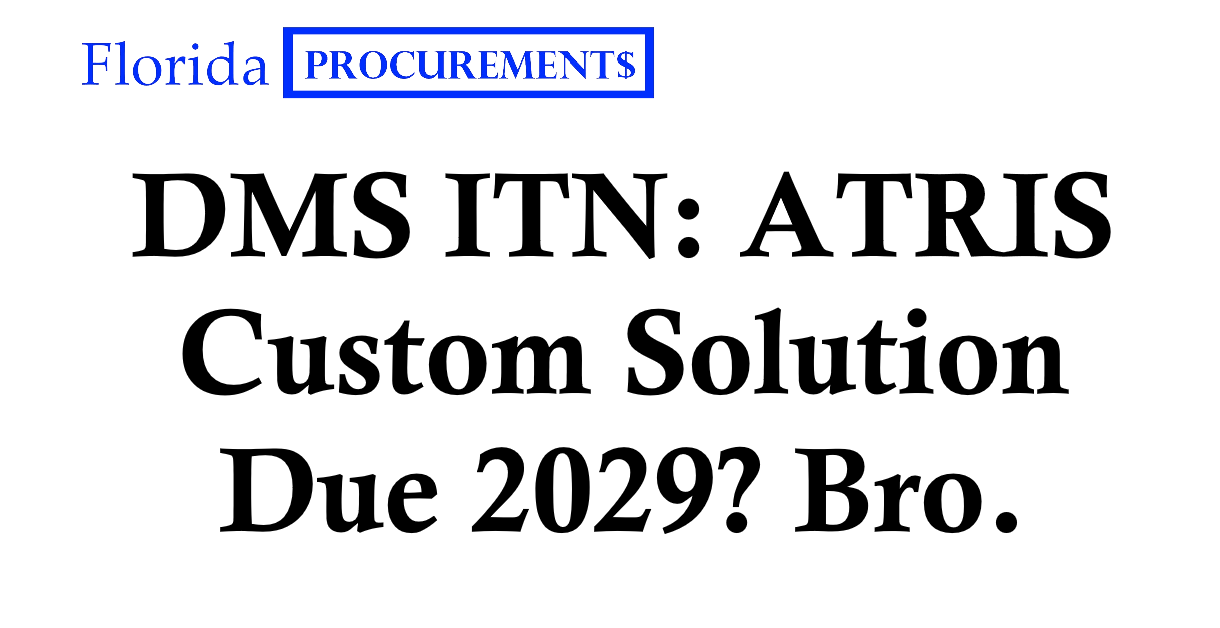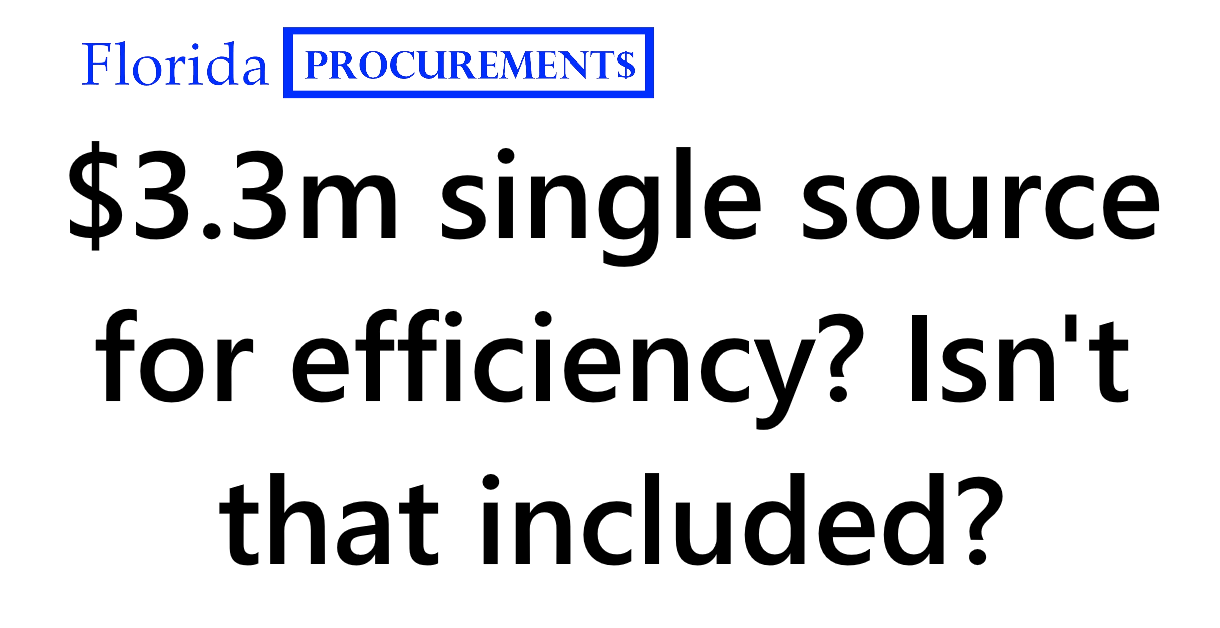
- April 3, 2025
- Sean Gellis
- 0
Welcome to FloridaProcurements.com (FlaProc), your authoritative resource for navigating Florida’s government contracting landscape, with particular focus on transportation and technology opportunities. FlaProc provides free, expert guidance to help companies identify and secure state contracting opportunities throughout Florida.
This resource is maintained by Attorney Sean Gellis of Gellis Law, PLLC, one of less than 75 attorneys Board Certified in State and Federal Government and Administrative Practice by The Florida Bar. Mr. Gellis brings unique insight to government contracting, having served as the Chief of Staff of the Florida Department of Management Services (DMS), General Counsel of the Florida Department of Transportation (FDOT), and Deputy General Counsel of the Florida Office of Insurance Regulation – positions that provided direct oversight of technology initiatives and issues of statewide importance. His record in bid protest litigation reflects the sophisticated advocacy and strategic thinking he brings to government contracting matters, particularly in complex transportation and technology procurements. Sean also leads Procurement Insider, a confidential subscription service that provides technology vendors with strategic intelligence and insider analysis of Florida government opportunities. Learn more about transforming your approach to government contracting at www.gellislaw.com/procurement-insider
PROCUREMENT ALERT: $3.3 Million Single Source for Medical Marijuana Registry "Improvements"

The Florida Department of Health has posted a notice of intent to award a $3.3 million single-source contract to Catalis Regulatory & Compliance, LLC for “improvements” to the Customer Service Representative (CSR) Software Solution used by the Office of Medical Marijuana Use (OMMU). This procurement raises several red flags that merit attention from the vendor community and procurement watchdogs.
The Basics

According to the notice posted on March 19, 2025, DOH plans to spend $3,375,000 over three years for “system improvements to the software solution used to service applicants of the Office of Medical Marijuana Use.” The department justifies this single-source procurement by stating that Catalis is “the sole provider of maintenance, modifications, enhancements and installation to the proprietary Customer Service Representative (CSR) Software Solution.”
But a closer look at what’s being purchased raises questions about whether this procurement meets the stringent requirements for single-source contracts under Florida law.
"Maintaining and Improving Efficiency" – Shouldn't That Be Included Already?

The performance requirements section states the department needs “modifications to the Customer Service Representative (CSR) Software Solution currently being utilized by the Department to maintain and improve operational efficiency of the application programming interface with the Office of Medical Marijuana Use Registry.”
This vague description deserves scrutiny. Basic maintenance and operational efficiency improvements are typically included in standard software contracts. Are Florida taxpayers being asked to pay an additional $3.3 million for services that should have been included in the original agreement? Without more specific details about what “improvements” are being purchased, it’s impossible to determine whether this represents a legitimate new scope of work or simply scope creep.
The Vendor Lock-In Problem

This procurement highlights a perennial issue with government technology contracts – vendor lock-in. Once a proprietary system is implemented, agencies often find themselves bound to the original vendor for the system’s entire lifecycle, with limited leverage to negotiate reasonable prices for modifications or enhancements.
The justification that Catalis is “the sole provider of maintenance, modifications, enhancements and installation” for their proprietary software is precisely the problem. Was this long-term dependency adequately considered during the initial procurement? Did the original solicitation require vendors to provide detailed pricing for future modifications? Was the total lifecycle cost of the system evaluated, or just the initial implementation?
Is This Truly a Single Source?

While Catalis may own the proprietary software, that doesn’t automatically make this a legitimate single-source procurement. Other vendors with expertise in similar regulatory systems might be capable of providing the required improvements through API integration or other approaches.
The single source notice lacks details about what specific technical capabilities are required that only Catalis can provide. Without this information, it’s impossible for other potential vendors to determine if they could meet the department’s needs.
The Florida Problem with Long-Term Technology Contracts

This situation illustrates a persistent problem in Florida government technology procurement: inadequate planning for system lifecycle management. Too often, agencies procure systems without comprehensive plans for future enhancements, leading to these types of uncompetitive follow-on procurements.
At $3.3 million, this “improvement” contract may approach or even exceed the cost of the original system implementation. At such a price point, the department should at minimum consider whether alternative solutions might provide better value for Florida taxpayers.
What Vendors Should Do

If your company believes it can provide these services or similar solutions to meet the department’s needs, you should submit a response before the April 9, 2025, deadline. Responses should be directed to:
Yasemin Sulker
Florida Department of Health
4052 Bald Cypress Way
Tallahassee, FL 32399
Email: [email protected]
Even if the department proceeds with the single-source award, vendor responses create a record that may inform future procurements and potentially lead to more competitive approaches.
The Bottom Line
Government technology procurement must balance the need for continuity and compatibility with the principles of fair competition and responsible stewardship of taxpayer dollars. This $3.3 million procurement for vaguely defined “improvements” raises legitimate questions about whether that balance has been properly struck.
Florida agencies should structure their technology procurements to avoid vendor lock-in whenever possible, and when proprietary solutions are chosen, future enhancement costs should be negotiated at the outset rather than years later when the agency has limited leverage.
We’ll continue to monitor this procurement and provide updates on any developments.
Monitor for further updates


